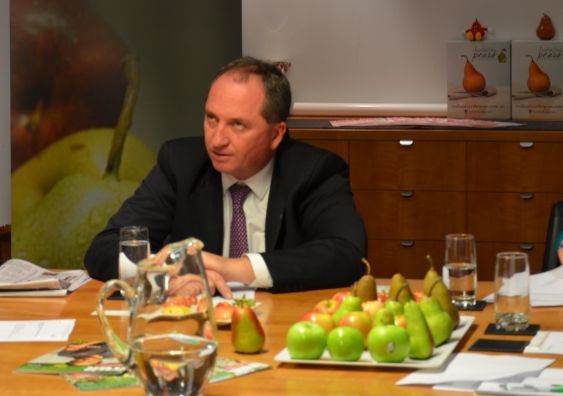Joyce’s alleged tax saving through use of a trust is unlikely to be effective
There isn't much room for Barnaby Joyce to sidestep tax on payment for a TV interview, say UNSW Business School experts.
There isn't much room for Barnaby Joyce to sidestep tax on payment for a TV interview, say UNSW Business School experts.

Julian Lorkin
UNSW Business School media
02 9385 9887 or 0405 805 365
j.lorkin@unsw.edu.au
UNSW Business School’s Dale Boccabella and Kathrin Bain say that tax minimisation is unlikely to be effective via a trust for Barnaby Joyce’s TV interview payment.
Barnaby Joyce is reported to have planned to use a family trust to save income tax with payment from a TV interview and save the money for his son until he is older.
The use of trusts, both in reality and perception, is overwhelmingly associated with both tax minimisation and asset protection.
However, Associate Professor Dale Boccabella from the School of Taxation & Business Law at UNSW Sydney comments “if the money is truly a payment for the personal services of Joyce or Campion - in other words for their efforts in providing the interview and related information - it becomes their assessable income under Australia’s personal services income, or PSI, regime.”
He and UNSW Sydney lecturer Kathrin Bain say there is no option given to a taxpayer to not have the PSI rules apply: “It is near impossible to see how it is not for the personal services of Joyce and Campion.”
Joyce is apparently getting his lawyers to establish the trust fund for his son, Sebastian, to set aside $150,000 he will be paid for an interview, to pay for future expenses like school fees.
“In the very unlikely situation that Joyce and Campion are not taxed on it, it becomes assessable income to the trust. In this case, the amount of tax payable is hard to determine unless we know the precise trust arrangement involved,” say Boccabella and Bain.
Joyce says the trust will incur tax and he and Campion will not be able to draw on the money.
Boccabella and Bain add, “If it is a genuine trust for the child only, and Joyce and Campion are not taxed, it is very likely that high taxation will apply.”
For comment contact: Dale Boccabella on 02 9385 3365, 0427 591208 or d.boccabella@unsw.edu.au, or Kathrin Bain on 02 9385 9541, 0400 794 285 or k.bain@unsw.edu.au.